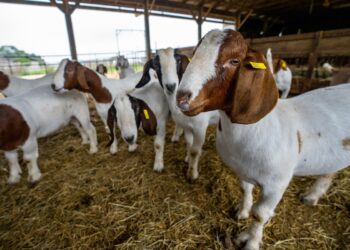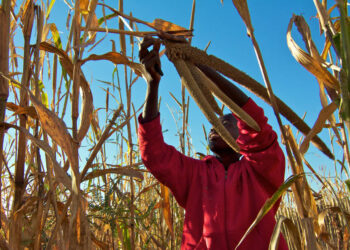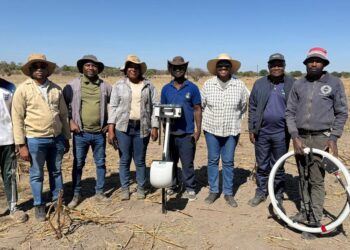
The Environmental Investment Fund (EIF) has collaborated with the Mobile Telecommunications Company (MTC) as well as the German Agency for International Cooperation to invest N$500,000 towards a first of its kind community seed bank in Kavango West.
The investment towards the Sharukwe Seed Bank stems from the Memorandum of Agreement signed between EIF and MTC earlier this year.
The seed bank is poised to become a crucial repository for local seeds, addressing the pressing need to safeguard natural resources and prevent the over-exploitation of various seed varieties.
The intervention not only prevents resource depletion but also ensures the preservation of seeds for the benefit of future generations.
“The significance of this initiative extends beyond the immediate impact felt in Kavango West, contributing significantly to Namibia’s overall food security,†the Manager of Corporate Communications at EIF, Lot Ndamanomhata, said.
Ndamanomhata said the Sharukwe Seed Bank, situated in the Ncuncuni Constituency, aims to integrate sustainable development into all aspects of its operations.
Beyond safeguarding seeds, the project is said to emphasise the broader goal of protecting natural resources, promoting environmental sustainability, and ensuring access to diverse and resilient agricultural resources.
“This initiative extends beyond financial backing; it embodies a shared commitment to environmental sustainability and the preservation of our natural heritage,” he said.
Meanwhile, MTC’s Fikameni Mathias emphasised the importance of preservation through seed banking, stating, “Just as much as we speak about smart farming or smart crop production, we now need to talk about preserving the fruits we eat today to ensure that those who will come after us must enjoy the same food and fruits that identify them.”
Community seed banks play a crucial role in the collection, storage, and preservation of indigenous seeds.
In the event of crop damage or destruction, these banks function as a vital emergency seed resource, guaranteeing farmers’ access to seeds for the upcoming planting season.
Although Namibia is initiating its inaugural community seed bank project in 2023, neighboring nations such as Zambia, South Africa, and Zimbabwe have long adopted this practice, with Zimbabwe, in particular, showcasing an impressive presence with 26 community seed banks.











